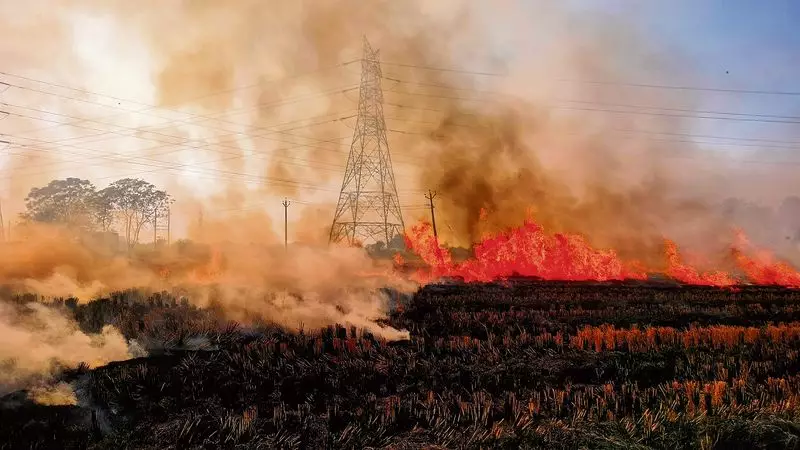
The agricultural heartland of Punjab is once again grappling with its annual environmental challenge as farm fires have surged dramatically, with authorities reporting 283 new cases in just 24 hours. This worrying development comes despite ongoing efforts to curb the practice of stubble burning that has become a major contributor to North India's deteriorating air quality.
Seasonal Crisis Returns With Vengeance
The latest data reveals that the state's farm fire count has reached alarming proportions, with the current season already witnessing significant agricultural residue burning across multiple districts. The timing couldn't be more concerning, as this period typically marks the peak of stubble burning activities following the paddy harvest season.
Regional Distribution and Hotspots
Preliminary reports indicate that certain districts have emerged as major contributors to this environmental concern. The pattern follows historical trends where agricultural-intensive regions show higher incidence rates of farm fires, though authorities have been implementing various measures to encourage alternative methods of crop residue management.
Environmental and Health Implications
The resurgence of farm fires poses serious threats to air quality not only in Punjab but across neighboring states and the National Capital Region. The smoke and particulate matter from these fires contribute significantly to the worsening Air Quality Index (AQI), creating hazardous breathing conditions for millions of residents.
Government Response and Challenges
State authorities have been working on multiple fronts to address this persistent issue. However, the latest spike in cases highlights the ongoing challenges in completely eliminating stubble burning practices. Farmers continue to cite economic constraints and lack of viable alternatives as primary reasons for resorting to this traditional method of clearing agricultural waste.
Environmental experts warn that unless more effective and economically feasible solutions are provided to farmers, the cycle of farm fires and subsequent air pollution is likely to continue, creating a recurring public health crisis across Northern India every winter season.






